Public
Kornelis Brochures
Kornelis Catalog
Kornelis Gallery
Kornelis Locations
Kornelis News
Kornelis Videos
If this is your company, CONTACT US to activate Packbase™ software to build your portal.
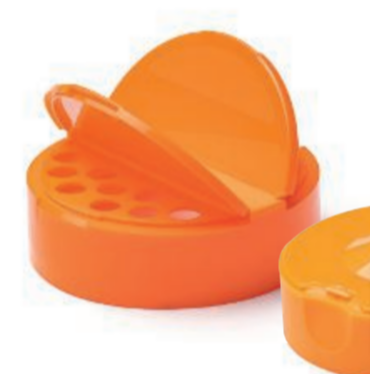

Kornelis Caps & Closures is investing its time, resources, and assets to fully commit to a circular economic model, where the manufacturing process entails as little damage to the environment as possible. Here are a few of the initiatives that are being applied to transform into a greener supplier of plastic packaging:
Adding as little as possible
The company wants all its closures to be made from sustainable raw materials and be 100% recyclable in ten years' time. Kornelis is therefore working hard to make its closures eco-friendlier so that they can even be processed for recycled food packaging in the future.
“Our goal is to use as little plastic, additives and dyes as possible,” says process engineer Mireia Mayol Orga. “This ensures that we increase the recyclability of our products. If closures enter the recycling stream and they contain a high concentration of additives, it affects the properties of the recycled raw material, and therefore, its processing at other companies.”
“We want to close the chain of plastic production for caps and closures,” adds R&D engineer Jildou Kers. “Every closure we manufacture must eventually be able to become raw material once again. Recycling must consequently be prioritized so that more recycled material can be used with every new batch. We work on that every day.”
Mono-cap
Several projects are underway within Kornelis to make it more sustainable. One of these is the development of mono-caps, with the goal of making all closures from a single material. Currently, Kornelis processes closures with cardboard inlays (temper evident), which are an obstacle during the recycling process. The infrared systems of the separation stations at recycling facilities detect closures with cardboard inserts as a foreign material, causing them to go with the waste. Thus, the company is currently working on processing plastic inserts of the same material.
“Plastic is much more flexible and we are adapting our production process to replace all cardboard inlays with plastic ones in the future,” says Kers.
Additives and coloring
Reducing additives in injection molding recipes is another important project within Kornelis. This makes the plastics more recyclable and less harmful to the environment. These additives are needed to improve the injection molding process because they allow plastic to flow better in the mold.
“With the recent introduction of new injection molding machines, the amount of additives in most recipes can be reduced,” says Mayol Orga. “The older hydraulic machines have been replaced by electric injection molding machines and molds have been improved. In addition, we are trying to add fewer and fewer dyes. And here, too, the new machines provide better mixing of the dyes. Considerable steps have already been taken, with the amount of additives and dyes even halved.”
ISCC certificate
Kornelis recently obtained the ISCC-PLUS certificate (International Sustainability and Carbon Certification) a natural step forward to comply with the increasing demand for closures of renewable raw materials.
Mayol Orga commented, "We were very interested in obtaining the certificate because Kornelis is committed to doing as much as possible in terms of sustainability. When producing for the food packaging industry, it is a challenge to find solutions that are not only safe for our consumers, but also functional and environmentally friendly for our products. The certificate guarantees that a certain percentage of a closure consists of recycled material or renewable feedstock.”
Making compromises
Kornelis also faces a growing demand for closures made from recycled plastic. Current legislation prohibits reusing raw materials from collected closures made of polypropylene and polyethylene in plastic food packaging.
As a result, closures often disappear into the incinerator or are recycled for non-food applications. “Producing these, however, is not easy,” says Mayol Orga. “Recycled content comes from a mix of plastic packaging and is therefore not colorless. Coloring these plastics often requires more time and attention than coloring virgin plastics. Customers, however, want the color to be the same as that of virgin materials. So, it is often searching for a middle ground. Bringing together the raw material supplier and the customer, we try to produce a closure that comes as close as possible to the original.”
“If a customer wants a closure with a certain shade of green and we have to add a lot of green dye to the base plastic, the customer will have to either accept that the amount of dye in the closure makes it less sustainable or agree to go with a different shade of green. Sustainable packaging is sometimes a compromise.”
Material savings
Weight reduction is also part of sustainability. The X-Cap project (derived from "extreme cap") is a good example of this. It involves a screw-on lid for wide-mouth jars for chocolate, pasta or peanut butter, and it has the same functionality as existing lids while using as little material as possible. Weight reduction in itself is not new in the plastics industry. What Kornelis is working on now is an extreme weight reduction, where the structure and shapes of the closures have been totally redeveloped. Every possible gram saving has been scrutinized.
For example, the company has partially interrupted and raised the thread, and the edge at the top has been divided into sections. The very thin wall has been made rigid enough to function, and compartments, ribs and slats have been added.
“All this translates in about 40 percent material savings,” Kers said. “It's balancing between as little material as possible and still developing a functional lid. And when this closure is made 100% from one material, you have the ideal closure.”
Contact us to learn more about our sustainable caps and closures.



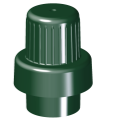
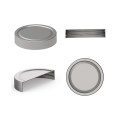



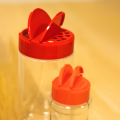
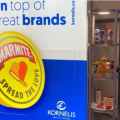
.png)
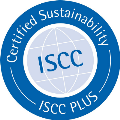


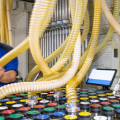
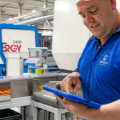
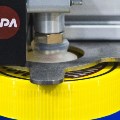
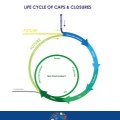
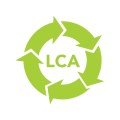
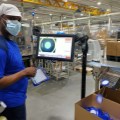
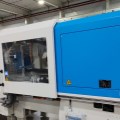


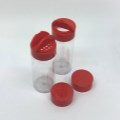

.jpg)
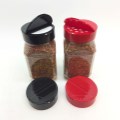
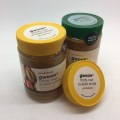
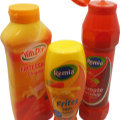

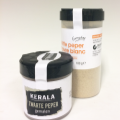
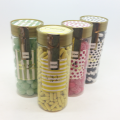
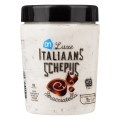
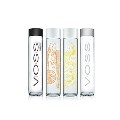








.png)





